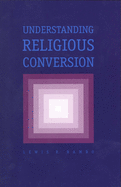
Religious conversion provides converts with an opportunity to embrace a community of faith and a philosophy that nurture and guide, that offer a focus for loyalty and a framework for action. Whether the conversion is from one religious tradition to another, from one denomination to another, from no involvement to participation in a religious community, or is an intensification of commitment within one's faith, the process can be complex but compelling and transformative.
In this book Lewis Rambo discusses the dynamics of conversion, presenting it as a multifaceted process of change with personal, cultural, social, and religious implications. Drawing on insights from psychology, sociology, anthropology, history, theology, and missiology, as well as on interviews with converts from disparate backgrounds, Rambo explores the forces that shape the conversion experience. He considers various theories of conversion, examines the role of cultural and social factors in the conversion process, and describes how different religions and disciplines view conversion. While acknowledging the individual nature of each conversion experience, Rambo discerns stages that are illuminating. These include opening oneself to new options; seeking a resolution to the dilemma or deprivation that makes change seem attractive; meeting the agent who embodies the religious vision; learning new roles, rituals, and rhetoric; and committing oneself to a new way of life. His book will not only encourage empathy for the converting process but will also provide a nuanced strategy of critique and evaluation of religious conversion throughout the world.
In this book Lewis Rambo discusses the dynamics of conversion, presenting it as a multifaceted process of change with personal, cultural, social, and religious implications. Drawing on insights from psychology, sociology, anthropology, history, theology, and missiology, as well as on interviews with converts from disparate backgrounds, Rambo explores the forces that shape the conversion experience. He considers various theories of conversion, examines the role of cultural and social factors in the conversion process, and describes how different religions and disciplines view conversion. While acknowledging the individual nature of each conversion experience, Rambo discerns stages that are illuminating. These include opening oneself to new options; seeking a resolution to the dilemma or deprivation that makes change seem attractive; meeting the agent who embodies the religious vision; learning new roles, rituals, and rhetoric; and committing oneself to a new way of life. His book will not only encourage empathy for the converting process but will also provide a nuanced strategy of critique and evaluation of religious conversion throughout the world.



